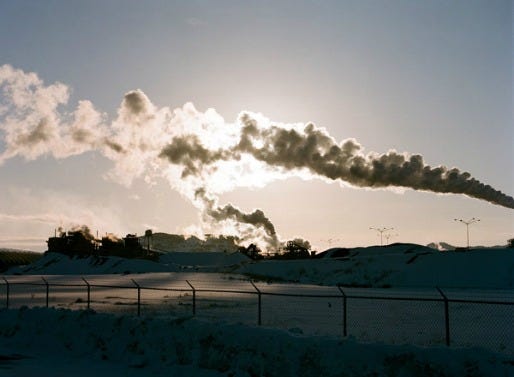Fall and Winter

For Indy Film Fest showtimes, click here.
Advocacy documentaries should pull you in, not push you around. It’s OK to have a cause and make a movie urging people to adopt it, though some would label that propaganda rather than reporting.
But “Fall and Winter” really, really wants you to agree with it and change your mind if you don’t. That’s bad because the result is heavy-handed and hectoring.
Even worse: This heartfelt doc isn’t even really sure what it’s about. Director Matt Anderson and his crew traveled the globe capturing gorgeous natural vistas and talking to various figures, ranging from well-regarded experts to anarchist crackpots.
The one unifying target of their ire: the global crisis. But which one? Climate change, economic inequality, pollution, warfare, governmental repression, corporate advertising, our obsession with celebrities, or detachment from cultural and religious traditions?
As it turns out, all of them.
The film plays out as a rambling, scattershot assault by a bunch of aging leftist thinkers against a nebulous “them.” It’s meant as a cautionary tale and call to action for people to reject the path that society is leading them down and choose another.
Of course, each interviewee has his or her own idea what the right way is. In a strange coincidence, it’s always self-evident to them that everyone should be doing what they’re doing.
So the guy making buildings out of garbage thinks you should build one with your own hands. Another preaches holotropic healing therapy … which he just happened to invent. And the ecopsychologist (apparently that’s a thing) believes we should rediscover the rites of initiation that young people need to help them into adulthood — perhaps through one of the “vision fasts” she leads.
(I wonder if she charges for that service? What’s her pitch? “Pay me to not feed you until you hallucinate.”)
I’ll confess that my own righty politics probably color my negative reaction to this aggressively progressive film. But my main objection is not necessarily with the content of its message but the garbled, hamfisted way it goes about broadcasting it.
As a framing device, Anderson uses video from a 1992 speech by Hopi Indian leader Thomas Banyacya to the United Nations. Banyacya was one of four messengers selected by the Hopi in the wake of the 1945 atomic bombings to go out into the world and spread their warning. The Great Spirit is upset that Mother Earth is out of balance, he cautioned, and unless we reform our ways, a great reckoning is at hand.
That may sound transcendental, but when you actually listen to what he had to say, Banyacya’s speech plays out like a rote recitation of American Indian grievances. To wit: Everything was just peachy until the white man came along and ruined it.
The loopiest section is among the earliest, where several authors and professors opine the great evil of humanity’s time on this mortal coil is … agriculture. And it’s not just the troublesome modern version, with its insecticides and genetically modified seeds but any kind of organized farming.
You see, mankind was in its natural state when people stayed in roving bands of hunter/gatherers. It was only when folks settled into one place around a stable food source that the concept of empires emerged, according to Richard Manning, who contends that “agriculture has hijacked civilization. It’s an experiment I think we’re going to finally conclude has failed.”
Never mind that our planet could only support millions, rather than billions, of people living this way. (Perhaps Manning has a manifesto for what we should do with the excess.)
The documentary shuffles on to various other topics and locales, including civil war in Sudan, closed auto factories in Detroit, the glory of composting, the BP Gulf oil spill and a swing by the Occupy Wall Street demonstrations that you just knew was coming.
I tried to be patient with this film, but I think I reached my breaking point when one quack began his lecture to the audience with, “As we began plowing up the breast of Mother Earth…”
The apocalyptic visions summoned in “Fall and Winter” are as dire as they are farfetched. Again and again, we’re told the earth has reached a tipping point, and we need to stop what we’re doing and return to harmony with nature.
As it happens, I agree … at least in one particular way: I suggest you not expend gasoline, electricity or any other resources to leave the natural state of your house — hopefully it’s a mud hut in the forest — to go see this muddled mess of a documentary.
1.5 Yaps



